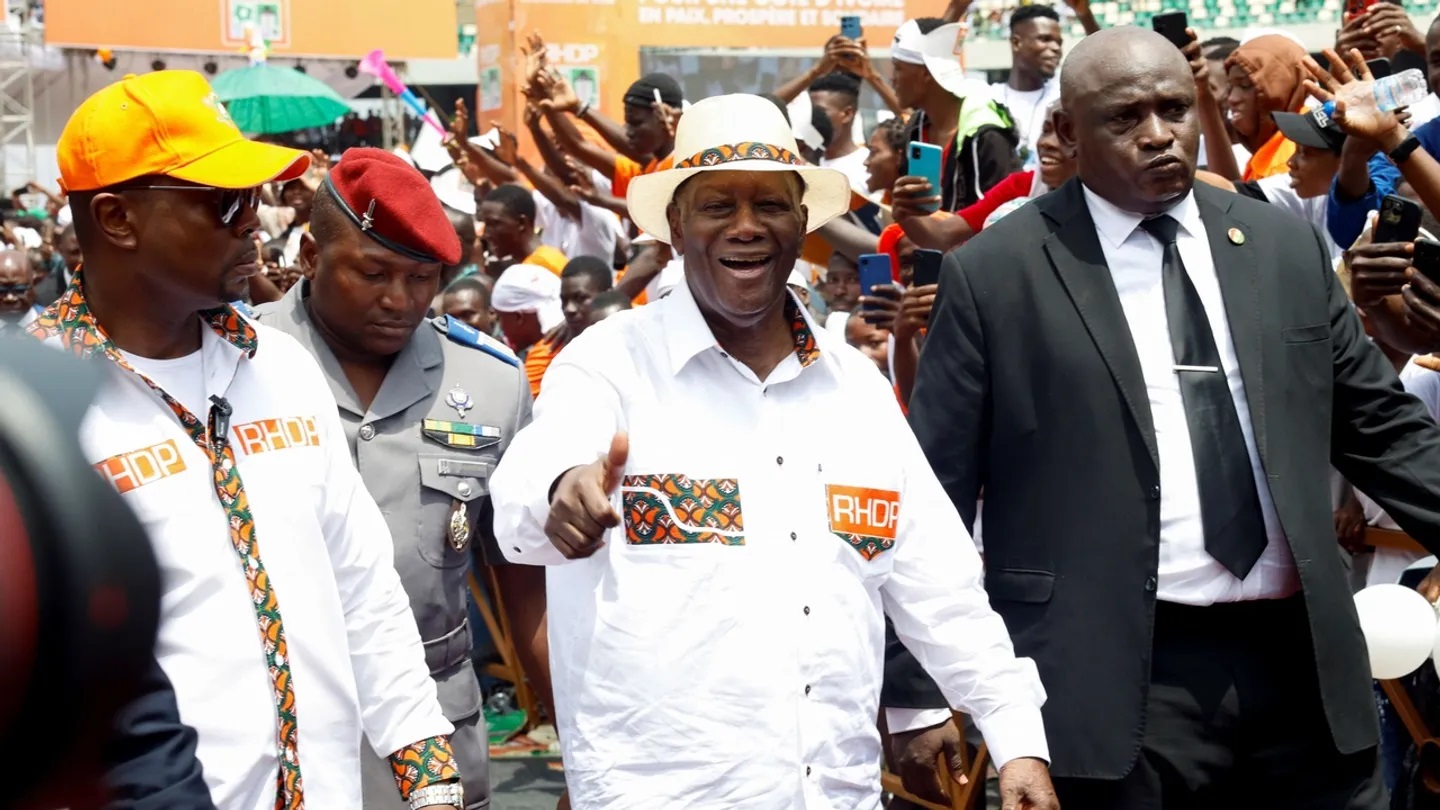Ivory Coast President Alassane Ouattara has confirmed he will run for a fourth term in the country’s upcoming presidential election, a decision likely to intensify political tensions ahead of the October 25 vote.
The 83-year-old leader made the announcement in a nationally televised address on Tuesday, ending months of speculation following his official nomination by the ruling Rally of Houphouetists for Democracy and Peace (RHDP) party.
“Over the past months, I have received countless appeals from citizens urging me to consider running again,” Ouattara said during his address.
He noted that women and youth from all corners of Côte d’Ivoire had voiced their hopes for his continued leadership.
“After deep reflection and guided by the nation’s best interests, I have made my decision,” he added.
Ouattara, who has governed the West African nation since 2011, enters the race as the leading contender, largely due to the disqualification of several high-profile opposition figures.
His political dominance has been cemented by a controversial 2020 constitutional change.
This reset term limits and allowed him to run for a third term, an outcome that sparked violent protests and left several people dead.
Initially, Ouattara had vowed not to seek another term after his third.
However, following the unexpected death of his chosen successor, Prime Minister Amadou Gon Coulibaly, he reversed his stance, claiming it was necessary for national stability.
The political climate is fraught with accusations and discontent.
Opposition leaders have condemned what they see as deliberate state-led efforts to sideline key challengers.
Many argue that the judiciary, while formally independent, has been weaponized to ensure Ouattara faces minimal competition.
Three major figures have been barred from contesting the election.
They include former President Laurent Gbagbo, his former ally Charles Blé Goudé, and ex-Prime Minister Guillaume Soro.
All were excluded from the electoral roll due to past criminal convictions.
Meanwhile, Ouattara’s most prominent current challenger, former international banker Tidjane Thiam, was disqualified on legal grounds.
This was after a court ruled he held dual nationality when he declared his candidacy.
Ivorian law prohibits presidential candidates from holding any nationality other than Ivorian.
The disqualifications have united major opposition forces.
Gbagbo’s African People’s Party of Côte d’Ivoire (PPA-CI) and Thiam’s Democratic Party of Côte d’Ivoire (PDCI), the country’s oldest and largest opposition party, have joined forces in a campaign demanding the reinstatement of their excluded leaders.
The alliance has organized protests and petitioned the electoral commission to reverse what they consider politically motivated rulings.
Past elections in Ivory Coast have been marred by unrest and violence, and this year’s contest is shaping up to follow a similar path.
Protests have already erupted in response to Thiam’s exclusion, and political observers warn that Ouattara’s re-election bid could trigger more unrest.
Ouattara’s pursuit of a fourth term places him among a growing list of West African leaders who have extended their time in office through constitutional amendments.
Critics say such moves undermine democracy and fuel instability across the region.
These developments have contributed to growing disillusionment with democratic processes, creating openings for military takeovers.
In recent years, West Africa has seen a wave of coups.
Military leaders are citing alleged corruption, contested elections, and democratic backsliding as justifications for seizing power.
These shifts have fractured the region’s main political and economic alliance, the Economic Community of West African States (ECOWAS), which has struggled to maintain unity and credibility amid the democratic erosion.
As the October election approaches, many Ivorians are bracing for what could be a volatile and contested political season.
With major opposition candidates sidelined and doubts cast over the fairness of the electoral process, Ouattara’s candidacy is reportedly a symbol of continuity.
It is also supposedly a flashpoint for rising discontent in a nation still recovering from past political crises.



